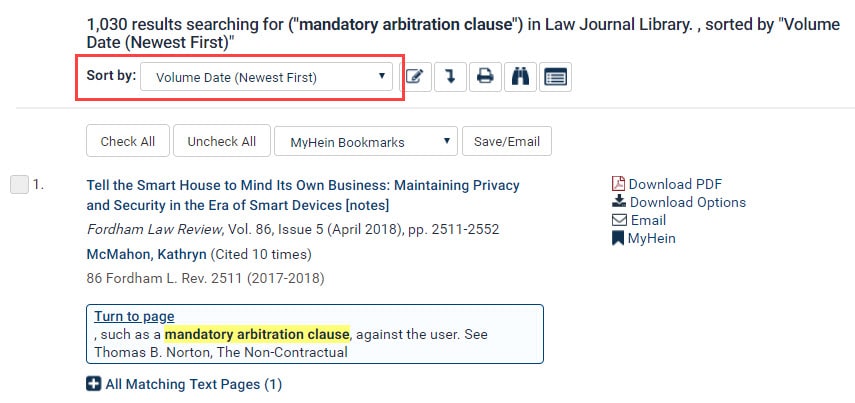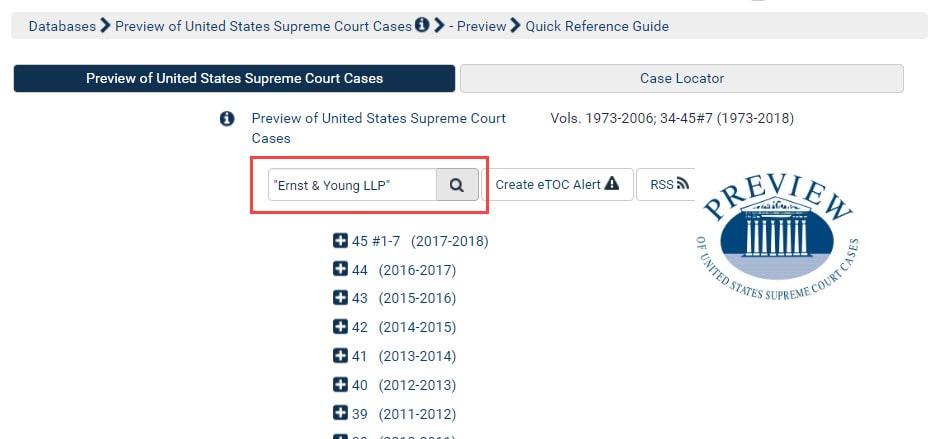Three cases were brought before the Supreme Court on May 21st, involving tens of thousands of nonunion employees. The cases were brought against Ernst & Young, LLP; Epic Systems Corporation; and Murphy Oil USA, Inc. to rule whether or not class action waivers were a violation of the National Labor Relations Act. The Supreme Court ruled by a 5-4 vote that employers can use contracts with workers to ban them from joining class-action lawsuits, as well as mandating individual arbitration in the event of a dispute.
About the Cases
The three companies involved in the Supreme Court case required their employees to waive their rights to join a class-action suit. However, in all three cases, the employees tried to sue together. The employees argued that the amount they were looking to recover in an individual lawsuit would be less than the legal fees alone. For example, in one case the legal fees for an individual would have amounted to $200,000 when the recovery for unpaid overtime was only $1,800.
According to a study by the Economic Policy Institute, 56 percent of nonunion private-sector employees are required to sign a mandatory arbitration agreement. This number has doubled since the early 2000s and includes barred access to the courts for all types of legal claims, including Title VII of the Civil Rights Act, the Americans with Disabilities Act, the Family and Medical Leave Act, and the Fair Labor Standards Act. Find these Acts and their legislative histories in HeinOnline.
Justice Neil Gorsuch, writing for the majority, stated the contracts were valid under arbitration law. He did state the policy was debatable, but the law was clear. Justice Ruth Bader Ginsburg read a summary of her dissent calling the decision “egregiously wrong.” She continued by saying that employees do not really have a choice when signing these agreements and labeled them “arm-twisted, take-it-or-leave-it contracts.”
Mandatory-arbitration clauses are preferred by corporate America because they lead to quick settlement and cost less than a class-action lawsuit. The popular ride-sharing company Uber recently ended their mandatory arbitration clause after 14 women were prevented from taking them to court over sexual-harassment charges. Uber included a mandatory arbitration clause in their contract with employees, but also had provisions found in user agreements for their app and software programs.
What Can You Find in HeinOnline
Let’s run a search to see what has been discussed regarding mandatory arbitration clauses. Begin by entering the Law Journal Library and type “mandatory arbitration clause” into the Full Text tab. Then, click the search button.

From the results page, sort by Volume Date (Newest First).

Relevant articles include:
- Reopening the Courtroom Doors: A Proposal for FCC Prohibition of Mandatory Arbitration Clauses
- All for One and One for All—The Case for Invalidating Collective Action Arbitration Waivers under Section 7 of the NLRA
- Dodd-Frank Wall Street Reform and Consumer Protection Act: The Evolution of Whistleblower Protections, Employment Contracts and Mandatory Arbitration Agreements
- The Legality of Class Action Waivers in Employment Contracts
- Arbitration Clauses Prohibiting Class Action in Consumer Contracts
Preview of the United States Supreme Court Cases
Stay up-to-date with the latest Supreme Court Cases with Preview of the United States Supreme Court Cases. This American Bar Association (ABA) journal is available exclusively through HeinOnline. This publication provides comprehensive expert analysis of all cases argued before the Supreme Court prior to the arguments. A subscription to this digital publication includes eight issues annually. Issues 1-7 summarize the Court’s seven argument sessions from October through April. Issue 8, which is published after the close of the Court’s term at the end of June, reviews the entire term using statistics, charts, essays, and case summaries.
Since the ABA’s Preview of United States Supreme Court Cases has been added to HeinOnline, subscribers now have a substantial advantage when accessing this publication digitally. HeinOnline allows users the ability to view the most current issue and archives in a fully searchable online database. All PDFs of the publication are available in full color. HeinOnline also provides inline hyperlinks within the documents that connect to other cited articles and cases in HeinOnline.
Other benefits include:
- Electronic Table of Contents (eTOC) alerts when new issues are added
- Links to Amicus & Merit Briefs
- Browse or search cases by docket #, term, case name, subject, etc.
- Additional case indexing and links to oral arguments and transcripts of each case
- HeinOnline’s ScholarCheck analysis on Preview articles and Supreme Court cases
- Custom case locator tool for quick retrieval of any case covered by Preview
- Review option for other scholarly works written by authors available in HeinOnline
- Full coverage available from 1973 to current
- Much more!
The cases discussed earlier can be found in the Preview of the United States Supreme Court Cases database. Users can search for a specific case using the search bar above the volumes listed. Enter “Ernst & Young LLP” in the search box and click the search button. Users can also search for a case using the Case Locator.

The results include Class Action Waivers in Employment Contracts: The Clash between the National Labor Relations Act and the Federal Arbitration Act: Ernst & Young LLP v. Morris, EPIC Systems Corp. v. Lewis, and NLRB v. Murphy Oil USA.
Pricing for Preview of United Sates Supreme Court Cases
Organizations…………………………………………………………………………………………….……………………………..$175.00
Individuals (Non-ABA members)………………………………………………………………………………………………$130.00
Individuals (ABA Members)………………………………………………………………………………………………………$120.00
Undergraduate/Law Students…………………………………………………………………………………………………….$25.00
K-12 Teachers………………………………………………………………………………………………….………………………….$25.00
Hard Bound Volume*…………………………………………………………………..………………………………………………$75.00
*Hardbound volume is available only to online subscribers.
For questions about this database, or for helping navigating HeinOnline, contact our dedicated support team at (800) 277-6995, email us, or chat with us.
Stay in the know with HeinOnline by connecting with us on Twitter, Facebook, Instagram and YouTube!



